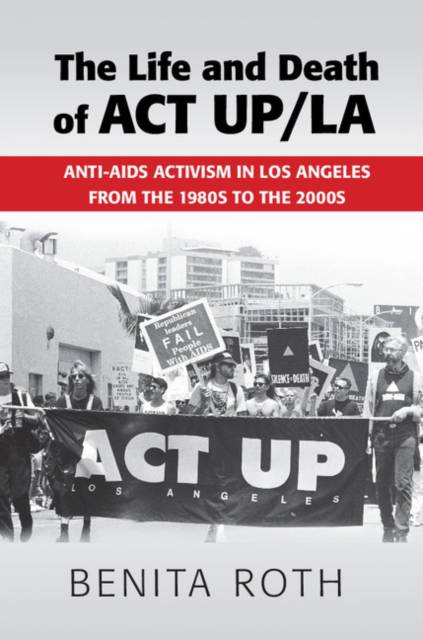
- Afhalen na 1 uur in een winkel met voorraad
- Gratis thuislevering in België vanaf € 30
- Ruim aanbod met 7 miljoen producten
- Afhalen na 1 uur in een winkel met voorraad
- Gratis thuislevering in België vanaf € 30
- Ruim aanbod met 7 miljoen producten
Zoeken
Omschrijving
The Life and Death of ACT UP/LA explores the history of the AIDS Coalition to Unleash Power, Los Angeles, part of the militant anti-AIDS movement of the 1980s and 1990s. ACT UP/LA battled government, medical, and institutional neglect of the AIDS epidemic, engaging in multi-targeted protest in Los Angeles and nationally. The book shows how appealing the direct action anti-AIDS activism was for people across the United States; as well as arguing the need to understand how the politics of place affect organizing, and how the particular features of the Los Angeles cityscape shaped possibilities for activists. A feminist lens is used, seeing social inequalities as mutually reinforcing and interdependent, to examine the interaction of activists and the outcomes of their actions. Their struggle against AIDS and homophobia, and to have a voice in their healthcare, presaged the progressive, multi-issue, anti-corporate, confrontational organizing of the late twentieth century, and deserves to be part of that history.
Specificaties
Betrokkenen
- Auteur(s):
- Uitgeverij:
Inhoud
- Aantal bladzijden:
- 260
- Taal:
- Engels
Eigenschappen
- Productcode (EAN):
- 9781107106314
- Verschijningsdatum:
- 27/06/2017
- Uitvoering:
- Hardcover
- Formaat:
- Genaaid
- Afmetingen:
- 164 mm x 239 mm
- Gewicht:
- 539 g

Alleen bij Standaard Boekhandel
+ 216 punten op je klantenkaart van Standaard Boekhandel
Beoordelingen
We publiceren alleen reviews die voldoen aan de voorwaarden voor reviews. Bekijk onze voorwaarden voor reviews.











